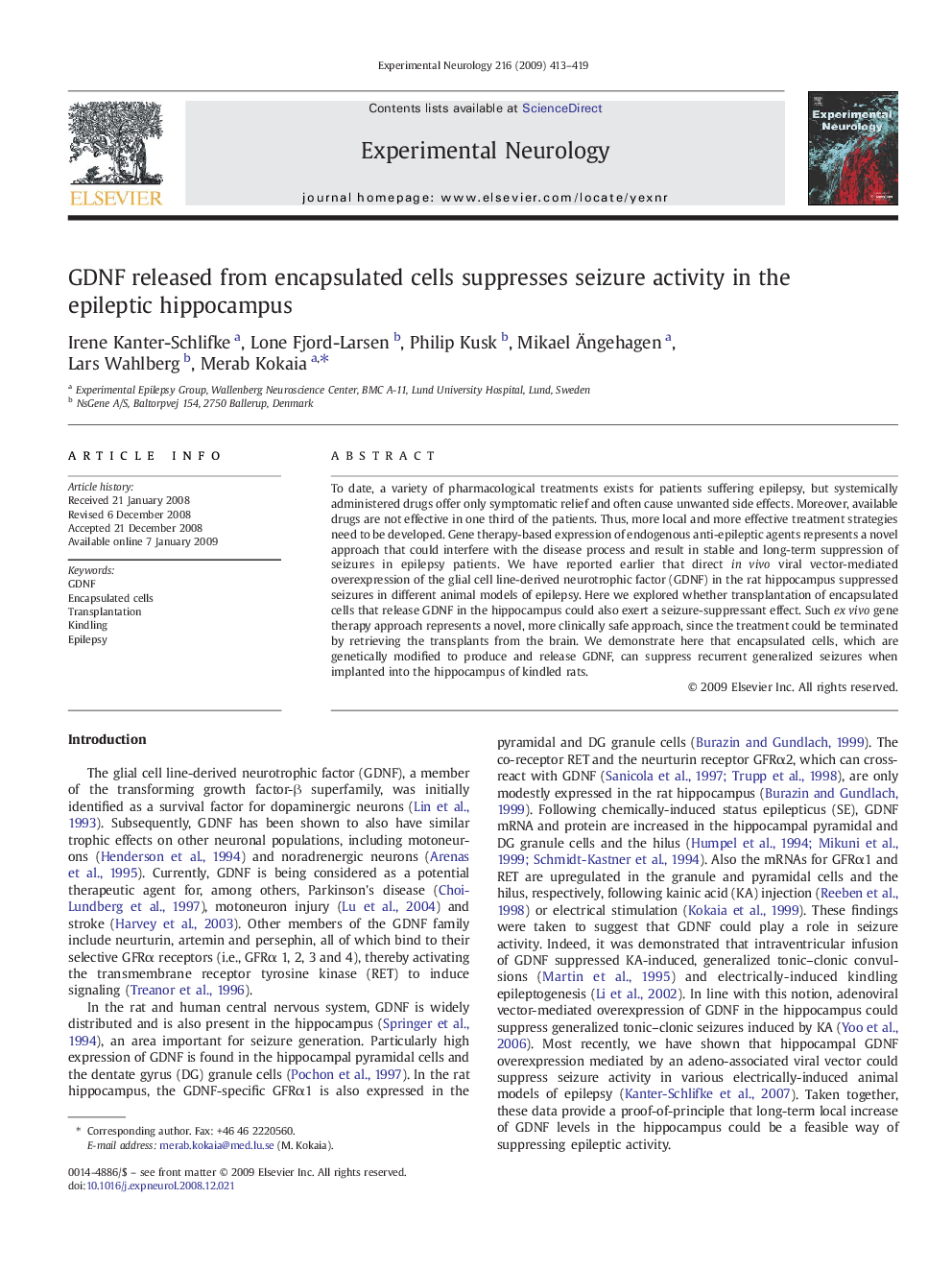| Article ID | Journal | Published Year | Pages | File Type |
|---|---|---|---|---|
| 3056496 | Experimental Neurology | 2009 | 7 Pages |
To date, a variety of pharmacological treatments exists for patients suffering epilepsy, but systemically administered drugs offer only symptomatic relief and often cause unwanted side effects. Moreover, available drugs are not effective in one third of the patients. Thus, more local and more effective treatment strategies need to be developed. Gene therapy-based expression of endogenous anti-epileptic agents represents a novel approach that could interfere with the disease process and result in stable and long-term suppression of seizures in epilepsy patients. We have reported earlier that direct in vivo viral vector-mediated overexpression of the glial cell line-derived neurotrophic factor (GDNF) in the rat hippocampus suppressed seizures in different animal models of epilepsy. Here we explored whether transplantation of encapsulated cells that release GDNF in the hippocampus could also exert a seizure-suppressant effect. Such ex vivo gene therapy approach represents a novel, more clinically safe approach, since the treatment could be terminated by retrieving the transplants from the brain. We demonstrate here that encapsulated cells, which are genetically modified to produce and release GDNF, can suppress recurrent generalized seizures when implanted into the hippocampus of kindled rats.
